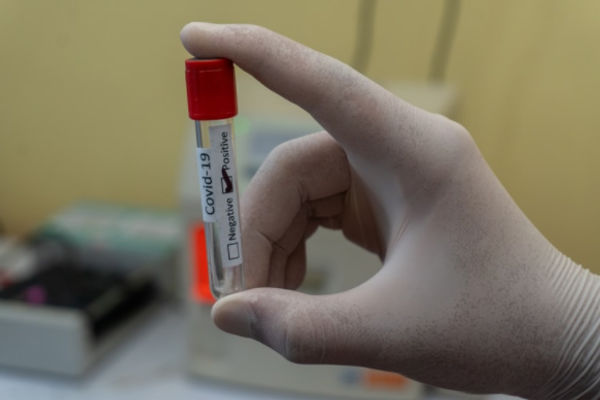As the spring semester came to a close last May, the mood around campus was undoubtedly jubilant. The reasons for this ubiquitous sense of glee were plentiful: warmer weather was prompting a bevy of outdoor activity. Exams were concluding. Summer finally seemed within reach. Yet what was perhaps most culpable for the described mood was that COVID-19, on Furman’s campus at least, was seemingly fading into obscurity.
While case numbers had been steadily declining on campus for much of the semester, and rules and restrictions related to the pandemic adjusted accordingly (though these alterations occurred at what seemed to be glacial speed), spring had brought with it a shining beacon of hope for students — vaccines. On March 26, South Carolina broadened the population eligible for vaccination to include those over 16, and almost instantaneously it seemed as though half of campus was eagerly rolling up their sleeves for immunization.
And as March turned to April and then May, more and more of the student body received immunizations. Furman even sponsored vaccination clinics for students and staff — all the while, campus enthusiastically bought into the notion that was simultaneously being purported all over America…. that being, that vaccines equaled COVID freedom.
These small needle pricks seemed to promise a break to the constant cycle of situational risk-assessment we had all been living in for almost a year. No longer would we have to continually contemplate the same string of tedious questions: “Should we mask? Is this safe? Will someone report me? Do they have COVID?” Such thinking was utterly exhausting, and thus we were all quite excited to abandon it once receiving our own tiny doses of freedom. Notably, campus was equally invigorated by the prospect of a fall semester free of COVID concerns, one vaccines seemed apt to provide.
However, we are now returning return to campus with a much different mindset, in a much different position, engaged in, per the CDCI, a much different war. But oddly, the culmination of such substantial change and uncertainty is leaving students and administrators with an ironically familiar question, one we lamented and grappled with at this exact same time last year: what will the coming semester entail?
Regarding the administration, it appears as though the delta variant has forced them to re-evaluate their proposed normal-ish semester plans. In other words, they have returned from their vaccine-induced cloud nine. And while the new guidelines set forth are not as stringent as last year's rules, and quite frankly seem short-sighted in many ways (apparently delta is not an evening exerciser, so you should be safe in the PAC after 4pm), there is a message to be found in the somewhat obtuse adjustments recently published.
The underlying theme of these altered considerations is this: the administration is tired of playing COVID-tsar, yet still realizes the necessity of some protection. Therefore, they have abstained from comprehensively protecting campus in the manner some would argue appropriate, yet released a smattering of “updated” guidelines in case of emergency. In other words, they have hedged their bets.
So if the administration is indeed demonstrating relative apathy towards COVID-19 this semester, it seems as though the actions of the students will be the decisive factor in determining how this fall proceeds — and it is this fact that gives me cause for concern.
I worry because, as noted earlier, we are now finding ourselves in a position similar to that of last year. Yet now, at this juncture, we are all the more fed up with cyclical risk-assessment. If this semester, which held so much promise last May, is truly shaping up to serve us yet another dose of mental anguish, campus is in for a rude awakening, for nobody has the mental stamina for such a task. So in the same manner that physical exhaustion oftentimes leads to missed alarms or muscle strains, mental exhaustion typically result in bad decisions -- decisions that, in the context of a new and extremely contagious delta variant, could prove disastrous.
To put it bluntly, Furman students are no mental marathoners. No matter our most optimistic or sincere desires, I do not believe we can last another semester of constant contemplation. Thus, when faced any of the safety-related quandaries the administration's new rules have practically forced us to answer this semester, students — myself included — will likely chose the easy, and probably more irresponsible, option. As for ramifications, those, like so much right now, will remain unknown.
So what will this semester look like? If I were to wager a guess, I would say this: the administration, given their patchwork of confusing new rules, seems weary of regulating COVID on campus. They have punted, and left the fate of the semester in our hands. Yet students are probably equally as indifferent towards any appeals to help “stop the spread.” Therefore, neither party on campus appears to be demonstrating an expressed interest in COVID regulation this fall. Personally, I find no issues in this fact, so long as both parties acknowledge it — if, in a month, the students are upbraided at the hands of the administration for disregarding safety measures, accountability needs to be fairly distributed. But we should hope to avoid such a situation.
Optimistically speaking, the high campus vaccination rate might be enough to save us all from our safety stoicism. But, if not, I worry that this fall will soon begin to even more closely resemble that of 2020. Only time will tell.
